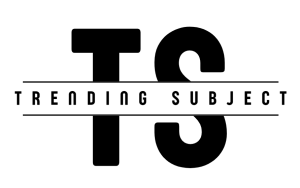Well, folks, buckle up, because the stage is set for a major showdown between Costco and its 18,000 Teamsters workers. After weeks of escalating tensions, 85% of Costco Teamsters have voted to authorize a strike if the retail giant doesn’t come to the table with what they’re calling a “historic, industry-leading agreement” by January 31. With less than two weeks to go, the pressure is mounting, and the countdown is officially on.
At the heart of this looming conflict is a question that has become increasingly central to labor disputes across the country: When does a company’s image as a “worker-friendly” employer align—or fail to align—with its treatment of employees? Costco has long prided itself on being a cut above the rest when it comes to wages, benefits, and workplace culture. But for the Teamsters, the rhetoric doesn’t match the reality, and they’re drawing a hard line.
Sean M. O’Brien, General President of the Teamsters, didn’t mince words in a statement released on Sunday. “Costco’s greedy executives have less than two weeks to do the right thing,” O’Brien said, making it clear that this strike isn’t about bargaining—it’s about sending a message. “If they refuse, they’ll have no one to blame but themselves when our members go on strike.”
The Teamsters’ demands seem rooted in Costco’s own claims of being an employee-focused company. Costco has built its brand, in part, on cultivating a positive workplace culture, with its website touting “fair wages and top-notch benefits” as core to its success. But as Bryan Fields, a Costco worker from Baltimore and member of Teamsters Local 570, bluntly put it: “We are the backbone of Costco. We drive its success and generate its profits. We hope the company will step up and do right by us, but if they don’t, that’s on them. The company will be striking itself.”
The Teamsters are not approaching this moment lightly. Practice pickets have already been held in California, Washington, and Long Island, with hundreds mobilizing in San Diego—the birthplace of Costco—for a large demonstration by Thursday. The final week of negotiations, set to begin January 20, will be a critical juncture for both sides. For Costco, this is a moment of truth. For the Teamsters, it’s an opportunity to prove their leverage and assert their role in the company’s success.
The stakes couldn’t be higher. Costco’s growth since its founding in 1976 as Price Club has been nothing short of extraordinary. What began as a single warehouse in San Diego is now a multi-billion-dollar global retailer operating in eight countries. But with that success has come increased scrutiny. Workers are now asking whether the company’s massive profits—bolstered by its $60 annual membership fees and high-volume sales—translate into fair treatment and compensation for the employees who make it all possible.
Labor disputes like this one reflect a broader trend sweeping the nation. Across industries, workers are challenging companies that profit from their labor while resisting calls for better pay and improved working conditions.
The Teamsters’ framing of this strike as a battle against “greedy executives” taps into a growing frustration among rank-and-file workers who feel undervalued even as companies rake in record revenues.
Costco, for its part, has remained relatively quiet about the negotiations, but the company’s reputation is on the line. Any extended strike could disrupt operations at its warehouses nationwide, putting a dent in its well-oiled machine and possibly alienating loyal customers. Costco’s image as a worker-friendly employer has been a key component of its brand—and failing to reach a deal with its Teamsters workforce could undermine that reputation in a big way.








